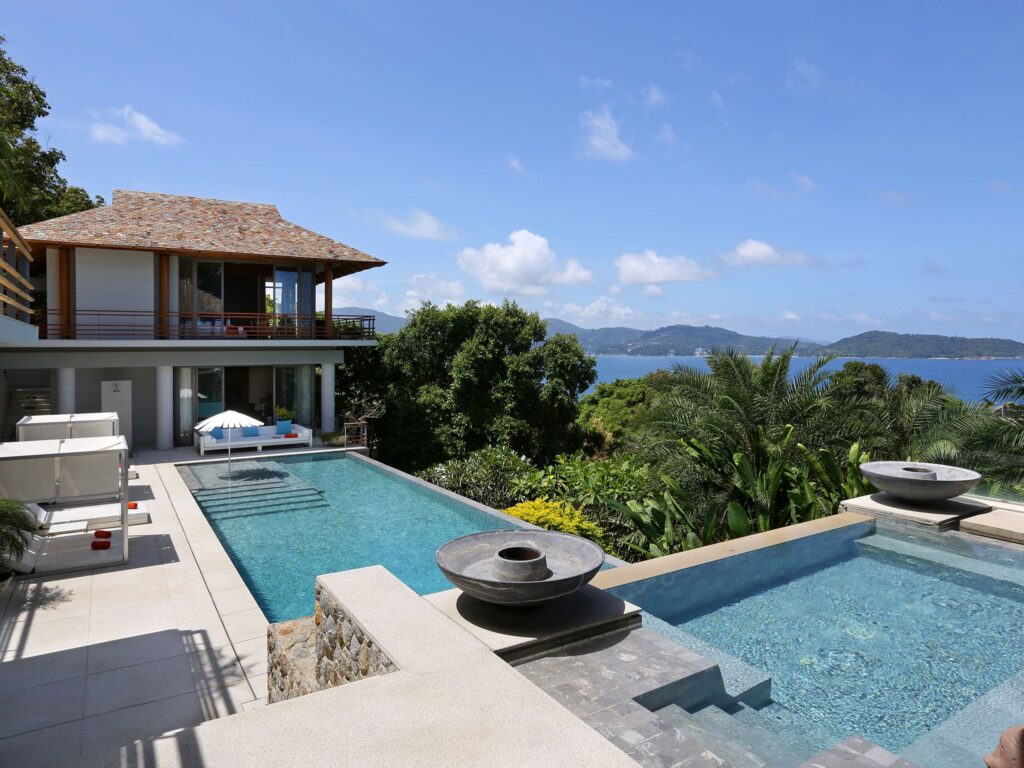The Real Estate Market in Thailand in 2024: A Comprehensive Analysis
In 2024, Thailand’s real estate market stands at a fascinating crossroads, reflecting a confluence of economic vigor, demographic shifts, regulatory evolutions, and technological advancements. As Southeast Asia’s second-largest economy, Thailand continues to attract global investors and developers, driven by its strategic location, robust tourism sector, and burgeoning middle class. This article provides an exhaustive analysis of the real estate market in Thailand, exploring trends, challenges, opportunities, and future prospects in great depth.
Economic Context and Overview
Thailand’s economy has demonstrated remarkable resilience and adaptability in the face of global economic uncertainties. In 2024, the country’s GDP growth rate is projected to stabilize around 3-4%, bolstered by strong performances in tourism, exports, and domestic consumption. The Thai government has been proactive in fostering economic growth through infrastructure development, foreign investment incentives, and strategic initiatives like the Eastern Economic Corridor (EEC). These economic underpinnings have significant implications for the real estate market, influencing demand, investment patterns, and development trajectories.
Key Trends Shaping the Market
1. Urbanization and the Evolution of Residential Demand
Urbanization remains a primary driver of residential property demand in Thailand. Major cities such as Bangkok, Chiang Mai, and Pattaya are experiencing rapid population growth, driven by the influx of young professionals, expatriates, and internal migrants seeking better employment opportunities and quality of life. This urban migration fuels the demand for diverse residential options, ranging from high-rise condominiums and serviced apartments to affordable housing projects.
Bangkok’s Residential Dynamics: In Bangkok, prime areas like Sukhumvit, Sathorn, and Thonglor continue to be hotspots for luxury residential developments. High-rise condominiums with modern amenities, smart home technologies, and eco-friendly designs are highly sought after by affluent buyers and investors. However, there is also a noticeable shift towards the outskirts and emerging suburbs, where land prices are lower, and large-scale mixed-use projects offer integrated living, working, and recreational environments.
2. Sustainable and Smart Building Innovations
Sustainability and technology integration are becoming increasingly pivotal in Thailand’s real estate sector. Developers are embracing green building practices, incorporating energy-efficient systems, and leveraging smart technologies to enhance the functionality and appeal of their properties. The focus on sustainability is driven by both regulatory requirements and growing consumer awareness of environmental issues.
Green Building Initiatives: Projects like One Bangkok and The Forestias exemplify the trend towards sustainable urban development. These developments prioritize green spaces, renewable energy sources, waste management systems, and water conservation measures. Additionally, smart home technologies, such as IoT-enabled appliances, security systems, and energy management tools, are becoming standard features in new residential and commercial projects.
3. Mixed-Use Developments and Lifestyle Integration
The concept of mixed-use developments is gaining traction in Thailand, driven by changing consumer preferences for convenience and integrated living experiences. Mixed-use projects combine residential, commercial, retail, and recreational spaces within a single development, creating vibrant communities that cater to various lifestyle needs.
Iconic Mixed-Use Projects: Iconsiam in Bangkok is a prime example of a successful mixed-use development. It offers a blend of luxury residences, retail outlets, entertainment venues, and cultural attractions, providing residents and visitors with a holistic lifestyle experience. Other notable projects, such as Mega City Bangna and Central Village, also highlight the growing popularity of this development model.
4. Resurgence of the Hospitality Sector
Thailand’s hospitality sector has rebounded strongly in 2024, buoyed by a surge in tourist arrivals and the country’s reputation as a premier travel destination. Coastal regions like Phuket, Krabi, and Koh Samui are witnessing increased investment in luxury resorts, boutique hotels, and vacation homes.
Tourism-Driven Real Estate: The government’s initiatives to promote sustainable tourism, diversify tourist destinations, and enhance travel infrastructure have further fueled the growth of the hospitality sector. Developers are capitalizing on this trend by investing in high-end hospitality projects, wellness resorts, and eco-friendly accommodations that cater to the evolving preferences of global travelers.
Challenges and Constraints
1. Regulatory Landscape and Foreign Ownership Restrictions
Navigating Thailand’s regulatory environment presents notable challenges for real estate developers and investors. The Land Code and Condominium Act impose restrictions on foreign ownership, limiting the ability of non-Thai nationals to acquire freehold land and properties. While foreigners can own condominium units (subject to certain quotas), the restrictions on land ownership remain a significant barrier.
Regulatory Reforms and Prospects: There have been ongoing discussions and proposals to relax foreign ownership regulations to attract more international investment. However, substantial changes have yet to be implemented. Investors must remain vigilant and seek expert legal advice to navigate the complexities of Thailand’s real estate laws.
2. Oversupply Concerns in High-End Segments
In specific segments of the market, particularly high-end condominiums in Bangkok, there are growing concerns about oversupply. The rapid pace of construction over the past decade has led to an excess of luxury units, resulting in increased vacancy rates and downward pressure on prices.
Market Adjustment Strategies: Developers are responding to these challenges by shifting their focus to more targeted and niche markets, such as affordable housing, co-living spaces, and senior living communities. Additionally, there is a growing emphasis on renovation and repurposing of existing properties to meet changing market demands.
3. Infrastructure and Connectivity Challenges
While infrastructure development is a cornerstone of Thailand’s economic strategy, delays and bottlenecks in executing major projects can impact the real estate market. Efficient transportation and connectivity are crucial for the success of new developments, particularly in emerging economic zones like the EEC.
Infrastructure Development Plans: The Thai government has prioritized several key infrastructure projects, including high-speed railways, airport expansions, and smart city initiatives. Successful implementation of these projects is essential to enhance connectivity, reduce travel times, and support the growth of new real estate markets.
Opportunities for Investors
1. Emerging Markets and Secondary Cities
Beyond Bangkok, Thailand’s secondary cities present promising investment opportunities. Cities like Chiang Mai, Udon Thani, and Khon Kaen are experiencing rapid growth, driven by improved infrastructure, economic diversification, and increasing urbanization.
Investment Potential in Secondary Cities: Real estate in these areas offers lower entry costs and significant potential for appreciation. The development of industrial parks, logistics hubs, and educational institutions further enhances the attractiveness of secondary cities for real estate investment.
2. Industrial and Logistics Real Estate
Thailand’s strategic location as a logistics hub in Southeast Asia makes it an attractive destination for industrial and logistics real estate investments. The rise of e-commerce and manufacturing activities has increased demand for warehouses, distribution centers, and industrial parks.
EEC and Industrial Growth: The Eastern Economic Corridor (EEC) initiative aims to transform the region into a leading industrial and logistics hub. This includes significant investments in infrastructure, technology, and human capital, creating new opportunities for industrial real estate development.
3. Tourism-Driven Investments
The resurgence of tourism presents lucrative opportunities in the hospitality and vacation home markets. Investors can capitalize on the growing demand for short-term rentals, luxury resorts, and beachfront properties.
Wellness and Eco-Tourism: There is a rising trend towards wellness tourism and eco-friendly accommodations, aligning with global travel preferences. Investments in wellness retreats, eco-resorts, and sustainable tourism projects are expected to yield high returns as travelers increasingly seek unique and responsible travel experiences.
Future Prospects and Long-Term Outlook
The future of Thailand’s real estate market appears bright, with several factors poised to drive growth and innovation over the coming years:
1. Infrastructure Development and Urban Expansion
Ongoing and planned infrastructure projects will play a pivotal role in shaping Thailand’s real estate landscape. High-speed railways, airport expansions, and smart city initiatives will enhance connectivity and accessibility, opening up new areas for development and investment.
Urban Expansion and Smart Cities: Urban expansion will continue to drive demand for residential, commercial, and mixed-use developments. Smart city initiatives, incorporating advanced technologies and sustainable practices, will create modern urban environments that attract residents, businesses, and investors.
2. Digital Transformation and PropTech Innovations
The adoption of digital technologies in the real estate sector is set to accelerate, transforming how properties are marketed, sold, and managed. PropTech innovations, such as virtual property tours, online transactions, and blockchain-based property records, will streamline processes, improve transparency, and enhance the overall customer experience.
Tech-Driven Real Estate Solutions: The integration of artificial intelligence, big data, and IoT will enable more efficient property management, predictive maintenance, and personalized services. These technological advancements will drive efficiency, reduce costs, and improve the quality of real estate offerings.
3. Sustainable Development and Environmental Stewardship
Sustainability will remain a key focus, with developers and policymakers prioritizing green building practices and sustainable urban planning. Initiatives to reduce carbon footprints, promote renewable energy, and create green spaces will contribute to a healthier living environment and long-term value.
Green Building Certification and Standards: The adoption of green building certification and standards, such as LEED and EDGE, will become more widespread, driving the development of environmentally friendly and energy-efficient buildings. Sustainable development practices will not only address environmental concerns but also enhance the marketability and value of properties.
Detailed Market Segmentation
1. Residential Real Estate
The residential real estate market in Thailand is segmented into several sub-categories, each catering to different demographic groups and preferences.
High-End Condominiums: Luxury condominiums in central Bangkok, particularly in areas like Sukhumvit, Silom, and Riverside, continue to attract high-net-worth individuals and foreign investors. These properties are characterized by premium amenities, top-notch security, and proximity to business districts and entertainment hubs.
Mid-Range Apartments: Mid-range apartments target the growing middle class and young professionals. Locations such as Ratchada, On Nut, and Ari offer more affordable housing options while still providing good connectivity and amenities.
Affordable Housing: The demand for affordable housing is rising, driven by urban migration and government initiatives to provide housing for low-income families. Developers are focusing on high-density, low-cost housing projects in suburban areas and satellite cities.
Serviced Apartments: Serviced apartments cater to expatriates and business travelers, offering a blend of hotel-like services and residential comforts. Popular areas include Thonglor, Ekkamai, and Asoke.
Co-Living Spaces: The co-living trend is gaining momentum among young professionals and digital nomads. These spaces offer flexible lease terms, communal living areas, and a sense of community. Developments in areas like Charoenkrung and Phra Khanong are particularly popular.
2. Commercial Real Estate
The commercial real estate sector in Thailand is witnessing robust growth, driven by the expansion of retail, office, and industrial spaces.
Office Spaces: Grade A office spaces in Bangkok’s central business district (CBD) remain highly sought after by multinational corporations and financial institutions. However, there is also growing demand for flexible office spaces and co-working environments, reflecting the changing nature of work.
Retail Spaces: The retail real estate market is evolving, with a shift towards experiential retail and mixed-use developments. Shopping centers like CentralWorld and Siam Paragon are incorporating more entertainment and dining options to attract visitors. E-commerce growth is also driving demand for logistics and distribution centers.
Industrial and Logistics: Industrial parks and logistics hubs are expanding, particularly in the EEC. The rise of e-commerce and manufacturing activities has increased demand for warehouses, distribution centers, and specialized industrial facilities.
Hospitality and Tourism: The hospitality sector is a major contributor to Thailand’s real estate market. Investment in luxury resorts, boutique hotels, and vacation homes is particularly strong in tourist hotspots like Phuket, Pattaya, and Chiang Mai.
3. Specialized Real Estate
Senior Living Communities: As Thailand’s population ages, there is growing interest in senior living communities. These developments offer a range of services and amenities tailored to the elderly, including healthcare facilities, recreational activities, and social engagement programs.
Student Housing: With Thailand becoming an educational hub in the region, student housing developments are on the rise. Proximity to universities, affordability, and modern amenities are key factors driving demand in this segment.
Investment Insights and Strategies
1. Identifying High-Growth Areas
Investors should focus on high-growth areas such as the EEC, which offers significant incentives and opportunities for industrial and commercial real estate. Secondary cities like Chiang Mai and Udon Thani are also emerging as attractive investment destinations due to their rapid urbanization and economic diversification.
2. Diversifying Portfolios
Diversification is key to managing risk and maximizing returns in Thailand’s real estate market. Investors should consider a mix of residential, commercial, and specialized real estate assets to capitalize on different market segments and trends.
3. Leveraging Technology and Innovation
Investors can gain a competitive edge by leveraging technology and innovation. PropTech solutions, such as blockchain for secure transactions, AI for predictive analytics, and VR for virtual property tours, can streamline operations and enhance investment decisions.
4. Sustainability and ESG Considerations
Incorporating environmental, social, and governance (ESG) factors into investment strategies is becoming increasingly important. Sustainable developments and green buildings not only meet regulatory requirements but also attract environmentally conscious tenants and buyers, enhancing long-term value.
Conclusion
The real estate market in Thailand in 2024 is a complex and dynamic landscape, offering numerous opportunities for investors, developers, and stakeholders. Urbanization, sustainability, technological advancements, and economic growth are key drivers shaping the market. While challenges such as regulatory hurdles and oversupply concerns exist, proactive strategies and informed decision-making can mitigate risks and unlock potential.
As Thailand continues to advance its infrastructure, embrace sustainable development, and leverage digital innovations, the real estate sector is set to thrive, contributing significantly to the country’s economic and social progress. For investors willing to navigate the intricacies of the market, Thailand presents a vibrant and rewarding real estate environment poised for continued growth and transformation.

If you're considering investing in Thailand's dynamic real estate market, we are here to assist you. Our team of experts offers comprehensive services, including market analysis, property selection, legal assistance, and investment strategy development. Beyond real estate, we specialize in global investment and financial services, providing tailored advice and solutions across various sectors.


